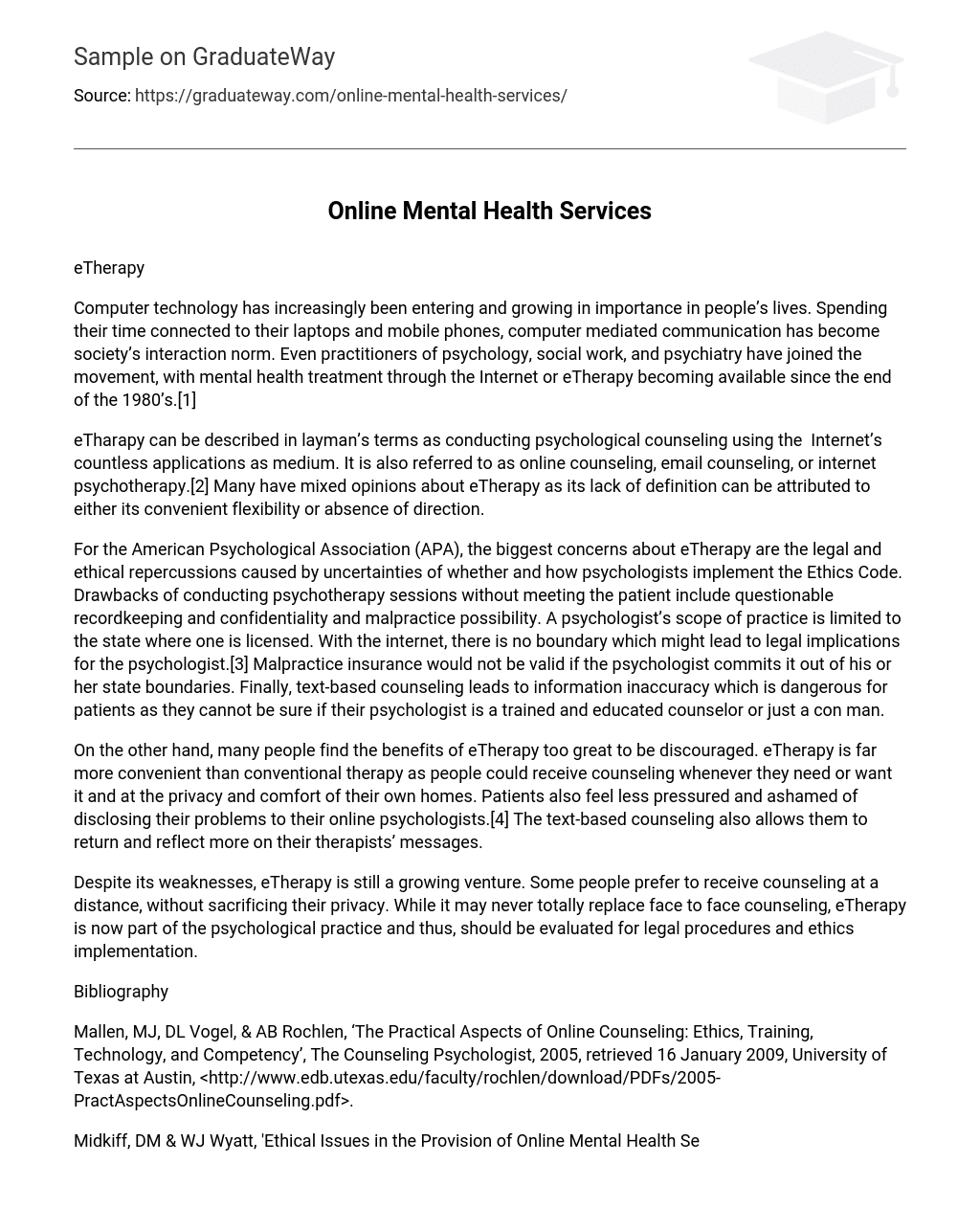Computer technology has increasingly been entering and growing in importance in people’s lives. Spending their time connected to their laptops and mobile phones, computer mediated communication has become society’s interaction norm. Even practitioners of psychology, social work, and psychiatry have joined the movement, with mental health treatment through the Internet or eTherapy becoming available since the end of the 1980’s.
eTharapy can be described in layman’s terms as conducting psychological counseling using the Internet’s countless applications as medium. It is also referred to as online counseling, email counseling, or internet psychotherapy. Many have mixed opinions about eTherapy as its lack of definition can be attributed to either its convenient flexibility or absence of direction.
For the American Psychological Association (APA), the biggest concerns about eTherapy are the legal and ethical repercussions caused by uncertainties of whether and how psychologists implement the Ethics Code. Drawbacks of conducting psychotherapy sessions without meeting the patient include questionable recordkeeping and confidentiality and malpractice possibility. A psychologist’s scope of practice is limited to the state where one is licensed. With the internet, there is no boundary which might lead to legal implications for the psychologist.
Malpractice insurance would not be valid if the psychologist commits it out of his or her state boundaries. Finally, text-based counseling leads to information inaccuracy which is dangerous for patients as they cannot be sure if their psychologist is a trained and educated counselor or just a con man.
On the other hand, many people find the benefits of eTherapy too great to be discouraged. eTherapy is far more convenient than conventional therapy as people could receive counseling whenever they need or want it and at the privacy and comfort of their own homes. Patients also feel less pressured and ashamed of disclosing their problems to their online psychologists.[4] The text-based counseling also allows them to return and reflect more on their therapists’ messages.
Despite its weaknesses, eTherapy is still a growing venture. Some people prefer to receive counseling at a distance, without sacrificing their privacy. While it may never totally replace face to face counseling, eTherapy is now part of the psychological practice and thus, should be evaluated for legal procedures and ethics implementation.
Bibliography
- Mallen, MJ, DL Vogel, & AB Rochlen, ‘The Practical Aspects of Online Counseling: Ethics, Training, Technology, and Competency’, The Counseling Psychologist, 2005, retrieved 16 January 2009, University of Texas at Austin, <http://www.edb.utexas.edu/faculty/rochlen/download/PDFs/2005-PractAspectsOnlineCounseling.pdf>.
- Midkiff, DM & WJ Wyatt, ‘Ethical Issues in the Provision of Online Mental Health Services (Etherapy)’, Journal of Technology in Human Services, Vol. 26, No. 2, 2008, pp. 310 — 332, retrieved 15 January 2009, Informaworld, <http://dx.doi.org/10.1080/15228830802096994>.
- Patrick, PKS, ‘Providing Counseling Online: Because We “Can”, Should We?’, VISTAS Online, 2006, retrieved 16 January 2009, American Counseling Association, <http://counselingoutfitters.com/Patrick2.htm>.





